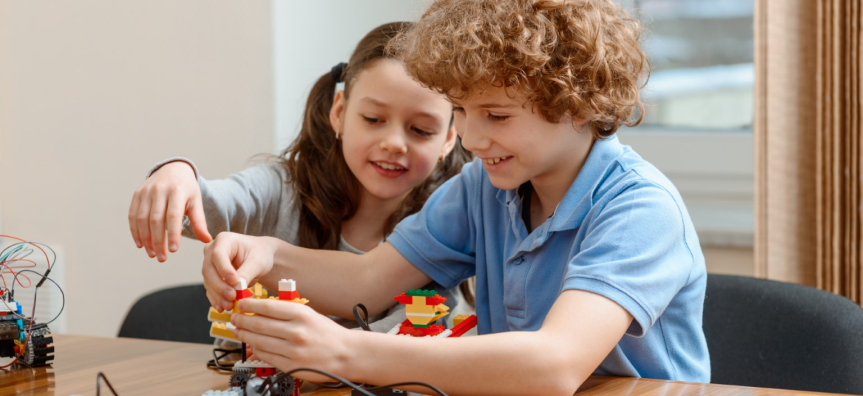
In celebration of National Science Week, we have put together a list of non-fiction titles for juniors that cover all things science. If you want to work in a field of science someday, we hope these books inspire you.
Infomojis: Planet Earth by Jon Richards and Ed Simkins
Whether it smashes, erupts, evaporates or freezes, Infomojis: Planet Earth explores our planet in a fun and engaging way. Core scientific areas of investigations are covered, such as plate tectonics and the role rainforests play in life on Earth. The best part? This book features custom made infomojis (information emojis) that present the information with real personality.
A day in the life of a chameleon: 4D by Lisa Amstutz
Give young nature explorers and zoologists an exciting way to learn about the chameleon's leafy homes, hunting features and behaviours. This book includes a step-by-step life cycle diagram, critical thinking questions and further resources to keep fact-hungry kids learning! There are other titles in this series also, you can learn about the cheetah, polar bear and penguin!
Fanatical about frogs by Owen Davey
Did you know there are over 4,000 species of frog? Some are bigger than your dinner plate while others are small enough to sit on your fingernail! Leap into this fascinating illustrated guide to the most diverse amphibians in the world.
The life of Marie Curie by Jane Kent
Learn how Marie Curie developed the term 'radioactivity', discovered polonium and radium and assisted in creating treatments for cancer. In addition, you can follow her path to becoming the first woman to win a Noble Prize.
The life of Charles Darwin by Jane Kent
Discover how naturalist and biologist Charles Darwin changed the world of science. Learn how he developed the theory of evolution and how he understood the process of natural selection.
The life of Stephen Hawking by Jane Kent
Meet Stephen Hawking, the intrepid physicist and cosmologist who developed ground-breaking theories of the universe while living with motor neuron disease. Follow his path as he formulates theories about black holes and the origins of the universe.
Astro-naut, aqua-naut by Jennifer Swanson
Journey from the deepest trenches in the ocean to the farthest corners of space and learn what it takes to explore the extremes. Both deep sea and space explorers have to worry about pressure, temperature, climate and how to survive in remote and hostile environments. You will discover the amazing science and incredible innovations that allow humans (and sometimes only machines) to survive in these harsh environments.
You can be a palaeontologist by Scott D. Sampson
How do palaeontologists find dinosaur bones? How do they know what dinosaurs looked like or ate? What is palaeontology anyway? Palaeontologist Dr Scott D. Sampson tackles all of these questions and more while inspiring kids to go out and make the next big dinosaur discovery!
Genius LEGO inventions with bricks you already have by Sarah Dees
This isn't just a book about building LEGO. These projects are fun but they also teach kids about science-powered creations such as levers, pulleys, suspension bridges, skyscrapers, gears, motorized machines, magnets and more.
